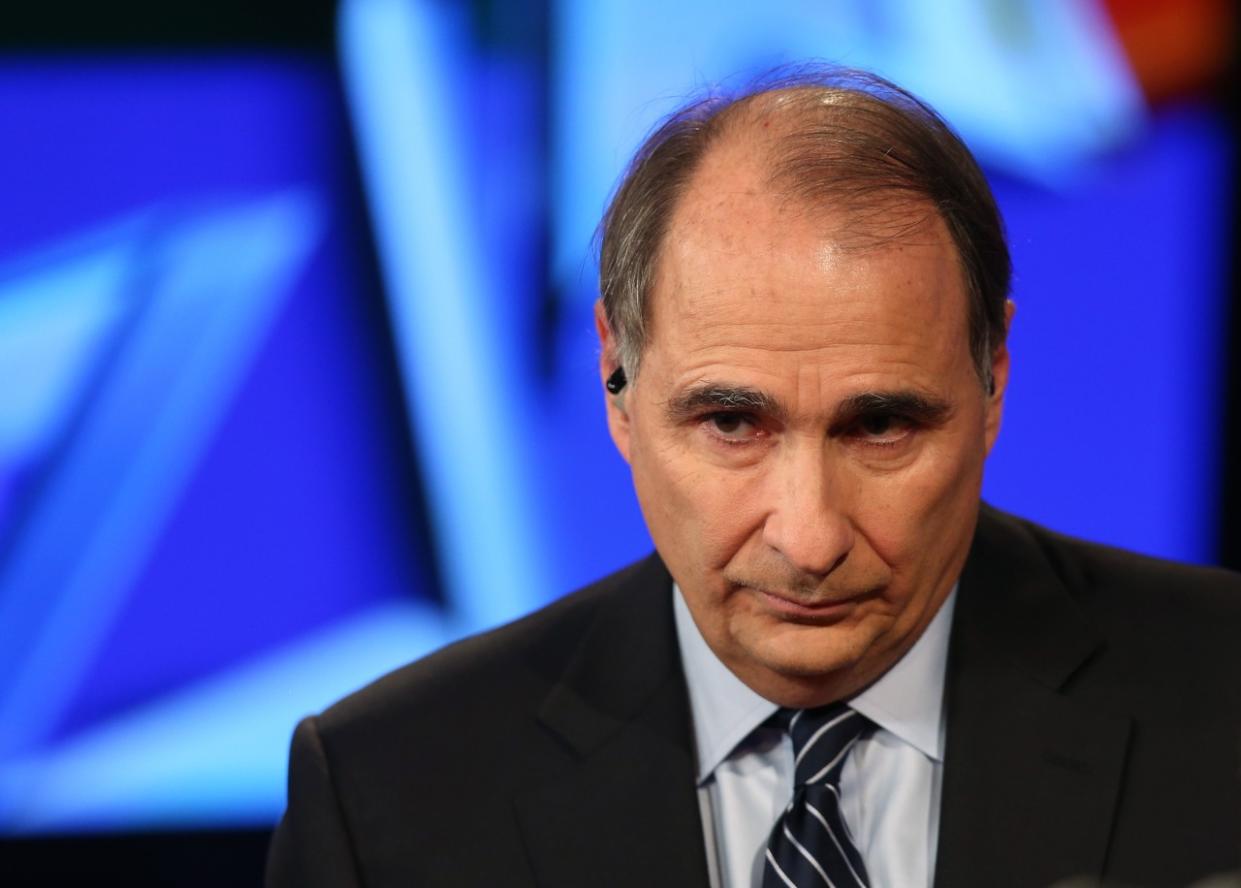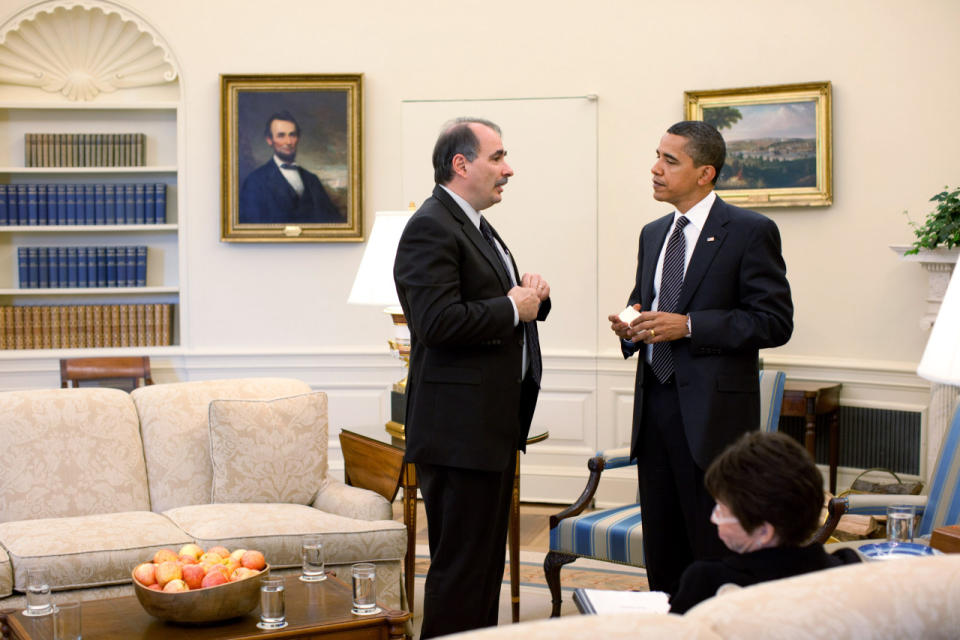David Axelrod: Joe Biden ‘genuinely conflicted’ about running for president — and may have missed his window

Obama campaign strategist David Axelrod at the Democratic debate in Las Vegas last week. (Photo: Joe Raedle/Getty Images)
David Axelrod, chief campaign strategist for both of President Obama’s election victories, says he believes Vice President Joe Biden is “genuinely conflicted” about running for president. And despite growing speculation that an announcement from Biden is imminent, Axelrod would be surprised if a decision comes in the next 48 hours.
“You know, anything could happen,” Axelrod, now director of the Institute of Politics at the University of Chicago, said on CNN’s “New Day” Tuesday. “But I think if you were trying to create time and space for yourself and keep people from committing to another candidate, you would give them encouragement to think that a positive decision is coming — and that is what operatives would do.“
“Part of him really wants to do it,” he said. “Part of him … is conflicted I think because of the pressures on his family and the emotional toll of such a race. I don’t think he’s resolved this in his head. And I think he’s going to play it out as long as he possibly can.”
On CBS’ “Face The Nation” Sunday, Axelrod said “there’s a growing impatience with this period of reflection” within the Democratic Party.
On CNN, Axelrod suggested Biden may have missed his window to jump into the Democratic race because Hillary Clinton has steadied herself after a summer slumber.
“In the summer there was this hue and cry for him to get in and save the party from a weak frontrunner,” he said. “She no longer looks like a weak frontrunner. She’s holding consistently 45 to 50 percent of the vote in polls. The debate obviously was very, very important for her. Bernie Sanders is doing well and holding a solid 30 percent of the vote in second place as people are very committed. That’s 75 percent of the vote. So just the politics [are] daunting.”
Clinton’s testimony before the select committee on Benghazi later this week could also be a factor, Axelrod said, but the controversy swirling around the committee in recent weeks has reduced the political risk for her.
“And then there are the organizational challenges,” Axelrod said of Biden’s potential bid. “And his organizational challenges are actually a little bit more complicated because as the sitting vice president there are fixed costs no other candidate has. You have to compensate the government for Air Force II and some of the other expenses associated with a vice president traveling. It cost President Obama an extra $25 million because he was the sitting president and all of these costs had to be covered by the campaign.”

President Obama with Axelrod in the Oval Office, 2009. (Photo: Pete Souza/The White House via Getty Images)
Axelrod, who became Obama’s top adviser following the 2008 election, says he was reluctant to follow the president to the White House.
“I had spent a career staying out of Washington,” Axelrod said in a recent podcast interview. “You know, I have a lot of great friends in Washington, I revere the institutions, I’m proud – particularly as the son of an immigrant – I’m proud of America’s institutions, and I think sometimes we take them for granted too much. But there’s a pathology to Washington that I – you know, it’s who’s up and who’s down, and very bright, insecure people trying to kneecap each other.”
But according to Axelrod, President Obama talked him into it:
I actually had this interesting conversation with Obama after the election — or, it was probably in the final weeks of the election, when we were thinking about, we knew we were gonna win. And I said, ‘I don’t, you know, I don’t know if I can go.’ And he said, ‘Why not?’ And I said, ‘Well, first of all … I’ve spent my whole life setting myself up so I could tell anybody I wanted to go f— themselves. And I’ve walked out of campaigns, and work situations, when I thought it wasn’t right.’ And I said, ‘And you can’t say that to the president of the United States.’ And he said, ‘Well, you know, that’s probably true. You can’t really say that to the president,’ he said. … And then he made the case why it was important, and so on and so forth. At the end of it he said, ‘And one other thing.’ ‘What’s that?’ I said. He said, ‘You can tell me to f— myself. Just don’t do it in front of anybody else.’ So I went.


